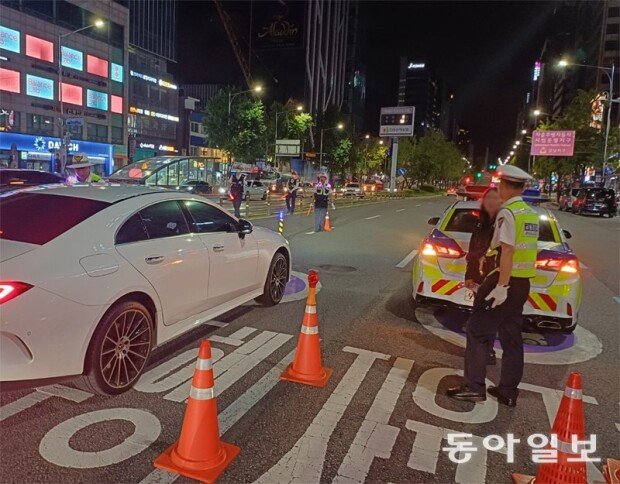Drug-impaired driving rises at a rapid pace
Drug-impaired driving rises at a rapid pace
Posted October. 04, 2024 07:55,
Updated October. 04, 2024 07:55

Drug-impaired driving, or driving under the influence of substances such as methamphetamine or ketamine, has been on the rise in recent years. In August, a man in his 40s involved in a car accident in Nonhyeon-dong, Gangnam-gu, Seoul, tested positive for methamphetamine. He had been driving under the influence of drugs and collided with a car stopped at a traffic light.
In July, another drug-impaired driver caused a car accident in Gangnam-gu, and in April, both the victim and perpetrator of a vehicle collision tested positive for drugs. Despite the sharp increase in traffic accidents involving drug-impaired drivers, the penalties remain weaker than those for drunk driving, highlighting the urgent need for stricter measures.
The number of drivers whose licenses were revoked for drug-impaired driving has nearly doubled in the past five years, according to the National Police Agency on Thursday. In 2019, 57 licenses were revoked, 54 in 2020, 83 in 2021, and 79 in 2022, before jumping to 113 last year. Under current law, anyone caught driving under the influence of drugs or other substances faces up to three years in prison or a fine of up to 10 million won, as per the Road Traffic Act. In contrast, drunk driving carries a harsher penalty of two to five years in prison or a fine of up to 30 million won. Given that drunk driving can also incur aggravated penalties, drug-impaired driving gets less than half the punishment.
이채완기자 chaewani@donga.com
Headline News
- Joint investigation headquarters asks Yoon to appear at the investigation office
- KDIC colonel: Cable ties and hoods to control NEC staff were prepared
- Results of real estate development diverged by accessibility to Gangnam
- New budget proposal reflecting Trump’s demand rejected
- Son Heung-min scores winning corner kick







